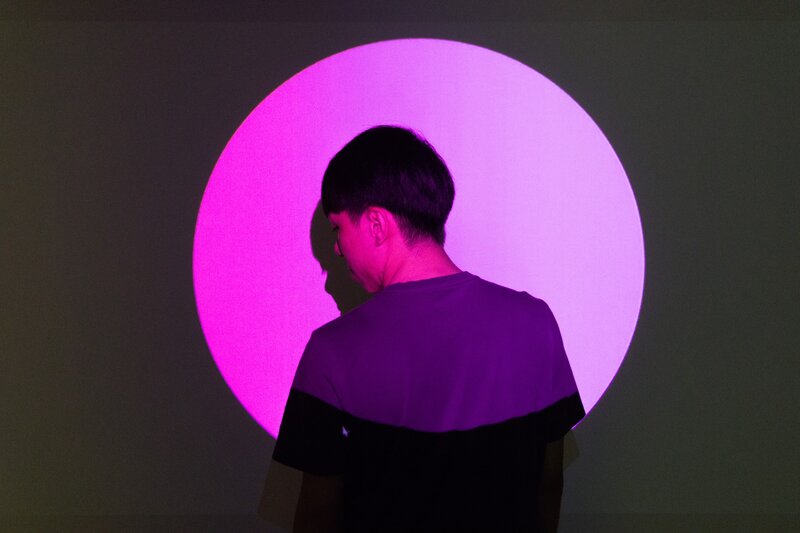Guest writer for Wake Up World
We’ve all come across those “high vibe” sparkly-toothed people before.
Perhaps we’ve gone through financial troubles, are suffering a bad relationship, have a sick loved one, or are feeling depressed.
We’ll then reach out for support to one of these love-and-light people and are met with a wall of positive statements like:
[pro_ad_display_adzone id=”110028″]
- “Just focus on the positive!”
- “Don’t be so negative!”
- “Think happy thoughts!”
- “You’ll get over it!”
- “Stay positive!”
- “All is love!”
- “There’s always a silver lining!”
But these sayings, while supposedly wise and spiritual, don’t actually help us. Instead, they fill us with rage and nausea – we have the sudden urge to leave the room screaming!
Why do we feel this way, you might wonder?
The answer is that these statements are invalidating and they are a form of toxic positivity.
When we are in pain, we want to be seen, acknowledged, and validated. We don’t want to be dished out superficial advice.
One of the biggest traps on the spiritual journey is toxic positivity or the “good vibes only” fallacy. And if you keep coming across it on your path, whether within others or yourself, here’s how to handle it:
What is Toxic Positivity?
Toxic positivity is, quite simply, an addiction to positive thinking. It can be seen as an underlying attempt to avoid negativity or painful feelings in ourselves and others. In other words, toxic positivity can be seen as a kind of “negativity phobia” where we bypass conflict through an obsession with maintaining “happy” thoughts and emotions.
Toxic Positivity and Spiritual Awakening

For anyone on the spiritual awakening journey (or those who have a basic interest in self-growth), coming across toxic positivity is inevitable.
What’s the first thing that comes to mind when you contemplate toxic positivity and the “good vibes only” message? Usually, it’s one of those new-age bookstores – or that super “woke” person who loves crystals and reiki.
But toxic positivity is lurking everywhere – in meditation groups, yoga retreats, self-improvement books, everyday people, work colleagues, and seemingly grounded teachers/gurus.
Why?
Here are a couple of reasons:
- When we’re trapped in the cycle of seeking positive vibes and avoiding conflict, we’re not actually growing as people. Instead, we’re stuck in a negativity-avoidance cycle that encourages us to abandon ourselves (and others) in times of need.
- Toxic positivity doesn’t give space for people to feel and process their emotions, and therefore promotes mental and emotional repression. This repression, in turn, leads to recurring problems in our lives (I’m talking addictive tendencies, explosions of anger, chronic anxiety, neurotic behaviors – the whole shebang).
Let’s face it: on the surface, the “good vibes only” message appears kind of cute and new agey.
It’s a message that can even be mistaken for being empowering and is frequently marketed as the key ingredient to a flourishing life.
But the reality is that dogmatic positivity (in any shape or form), denies our basic need for authentic self-expression – and we need to be very careful of that.
4 Disturbing and Harmful Signs of Toxic Positivity

Toxic positivity is forced, false positivity. It may sound innocuous on the surface, but when you share something difficult with someone and they insist that you turn it into a positive, what they’re really saying is, My comfort is more important than your reality.
– Dr. Susan David, (Author of Emotional Agility)
I have come across my fair share of “turn that frown upside down!” people in my field of work.
Below, I’ll share with you how exactly toxic positivity can manifest that I’ve observed through the years:
- A phobia of critical thinking – In the realm of toxic positivity, critical thought is generally perceived as something “negative” and unsavory. Questioning and pointing out flaws and logical fallacies is something frowned upon and is often immediately shunned – along with the person – who is perceived as a “troll,” “trouble-maker,” “argumentative person,” or most condescending of all, an “unawakened person.”
- Dogmatic positivity – If you don’t agree with what the Good Vibes Tribe has to say or what they believe, you’re passive-aggressively outlawed. Don’t expect to receive genuine empathy or emotional support from them – you’ll be met with a wall of feel-good aphorisms and spiritual rhetoric.
- Spiritual ego disguised as ‘wokeness’ – There’s an undeniable undercurrent of self-righteousness inherent in toxic positivity and Good Vibes Only mentality. It’s almost as if such people believe themselves to be “more evolved” or on a higher plane of existence than others. This spiritual egotism triggers feelings of shame and unworthiness in those reaching out for help and support.
- Gaslighting – Gaslighting is a manipulation technique that is favored by the Good Vibes crowd – it makes you question your sanity and reality, therefore increasing the power of the “always be happy” philosophy. Never doubt the power of the spiritual ego, it will go to any length to maintain its position of rightness and righteousness.
Can you recognize any of these behaviors in another person, group of people, or even yourself?
How to Deal With Toxic Positivity

If you frequently come in contact with someone who vomits rainbows-and-sunshine over you, you might wonder what you can do to put an end to such purgatory (I say unsarcastically).
It’s not nice being gaslit, invalidated, and shamed for our painful emotions or experiences. Here’s what you can do:
- Know that experiencing negative emotions or circumstances in normal. It’s okay to feel scared, angry, jealous, sad, or insecure. Don’t let anyone tell you otherwise. You’re allowed to be human!
- Understand that their behavior comes from fear. People don’t adopt cultish ideas for the heck of it; they do it out of an underlying sense of fear and powerlessness. So once you have the emotional space, take some time to come to grips with this reality. It’s empowering to understand the deeper causes of someone’s harmful behavior. (Read: Why Are People So Mean?)
- Seek out someone who is ready to hold space for you. Toxic positivity doesn’t hold space for anyone – it can’t because it’s too busy try to run away from negativity. So find someone you trust, maybe a friend, family member, or therapist, and ask them to hold space for you. Holding space means listening to and embracing another person, exactly how they are. If someone shows signs that they’re not able to hold space for you, keep your boundaries and find someone who can.
- Practice self-care. It’s not nice being bulldozed by positivity – it feels terribly isolating and can make you feel like there’s something “wrong” with you. So don’t forget to take care of yourself. Do something nurturing as an act of self-love like making a calming cup of tea or taking a walk in nature. (Read: How to Love Yourself)
What to Do if YOU Are Struggling With Toxic Positivity

In life, we like to believe that there are victims and perpetrators. But sometimes, the victim can become the perpetrator and vice versa.
None of us are perfect, and that’s okay.
Here’s what to do if you are the one who has fallen into the Good Vibes Only trap:
1. Pinpoint which issues you’re struggling with
Put simply, toxic positivity is a type of negativity phobia.
See which of the following issues you’re struggling with (and be honest):
- You avoid people or situations that create uncomfortable feelings in you at all costs.
- You’re attracted towards the lighter and more “high vibe” aspect of spirituality, but feel repelled (and maybe also irresistibly drawn to) the shadow side or Underworld path of spirituality.
- You can’t handle criticism well (even if it is a well-meaning critique) and feel terribly upset or insecure.
- You feel unusually defensive or on-guard around others.
- You’re highly sensitive to people’s thoughts and opinions about you.
- You intentionally try to block out all forms of negativity from your life.
- You refuse to acknowledge your shadows.
- You tend to be an idealist.
- You feel intense and overwhelming emotions such as anger, fear, hatred, or disgust when you’re confronted with a negative person.
If you don’t journal yet, invest in a journal and make a regular habit of writing down your thoughts and feelings. The simple habit of journaling is a wonderful way of developing more self-awareness. (See: How to Journal)
You can also use the above symptoms to journal about. Ask yourself questions such as, “Where did this originate?” “How does this impact me/others?” “What can I do to create more balance?”
2. Understand that conflict/negativity is actually a good thing
Here’s why conflict is such a powerful teacher:
- It helps you to develop more patience and forbearance around others.
- It helps you to “see beyond the veil” of another’s actions and develop deeper insight and compassion for them.
- It reveals your own areas of vulnerability and insecurity.
- It shines a light on your shadow tendencies.
- It can point out where you’re genuinely going wrong.
- It’s a no-bullshit teacher that reveals how you can grow more.
- It’s a way to test your emotional and spiritual maturity.
Having someone say “no, you’re wrong” or “that’s totally ridiculous!” is an immensely valuable gift.
Even if the person is NOT coming from a conscious or caring place, it’s a gift to experience conflict from others for it reveals the truth about ourselves.
The way in which we react to others speaks volumes about our capacity to practice kindness and understanding.
Furthermore, the way in which we react to others is a mirror of our own pain, insecurities, and fears.
3. Learn how to embrace conflict

Embracing conflict doesn’t mean enjoying it or seeking it out.
Instead, embracing conflict is about adopting a mindful attitude that values the experience as something useful to learn and grow from.
Here’s how to work towards embracing conflict and overcoming toxic positivity:
1. Stop and take a deep breath. Catch yourself before you react. Walk away if you must. Take a few moments to gather yourself, and then respond.
2. Ask yourself, “What is this person or situation secretly teaching me?” Sure, the person might be acting like an asshole, but what message is being embodied through their actions?
3. Be curious and adopt an attitude of interested awareness when you feel triggered. Look at the emotions surging through your body. Examine the thoughts in your mind. Take note of how you’re feeling. To do this, you need to practice mindfulness exercises like conscious breathing or observing. If you can’t get into a mindful place within yourself, walk away or count your breaths.
4. Ask yourself, “What is actually hidden behind this person’s negativity?” Stop taking emotions and apparent motives at face value. Try to think of all the possible reasons why that person is being negative. For example, maybe they have severely low self-worth. Maybe they are lonely and want attention (whether good or bad). Maybe they just went through a breakup. Maybe one of their loved ones just died. Maybe they’re experiencing a stressful day. Maybe they feel angry and sad about life. Be open to alternative explanations, there are endless possibilities.
5. If you get emotionally triggered, reflect on the experience. What was it about the person that infuriated you so much? Instead of blaming them for being “low vibe” or toxically negative, try to find the opportunity for growth that is being presented to you.
6. Understand that all negative behavior has its root in pain. When I say pain, I mean emotional pain such as sadness, loneliness, emptiness, and fear. Once you can truly understand this for yourself, you’ll be able to empathize with the person (instead of trying to get them to be positive).
4. Hold space for your own pain
Chances are that if you’re in the habit of being excessively positive, you were taught at some point that showing any form of negative emotion was bad and deserved punishment.
To overcome toxic positivity, you’ll need to learn how to befriend your pain. Furthermore, by turning toward rather than away from your negative emotions, you’ll finally be able to hold space for others in a meaningful and compassionate way.
To hold space for your pain, you’ll need to:
- Learn how to practice genuine self-love
- Take care of your wounded inner child
- Face and identify your shadow self
Remember that dealing with negativity in a healthy way is a process, so it will take some time. Be gentle with yourself, go slowly, and be persistent – you’ve got this!
Toxic Positivity FAQ

Before we finish this article, let’s explore some frequently asked questions surrounding toxic positivity:
How to respond to toxic positivity?
Responding to toxic positivity differs according to the context. If you come across well-meaning toxic positivity in a close relationship, clarify your needs to the other person and let them know that you simply need them to hold space for you. For example, you might say, “I know that being positive is good, but right now I just need you to hold space for me and listen.” If the person wasn’t well-meaning (i.e., judgmental, condescending, rude) – no matter whether in a close relationship or acquaintance situation – swiftly end the conversation. Unless you’d like to argue or tell them off (which will exacerbate the situation and reinforce their toxic positivity – although I don’t blame you!), the best thing to do is end the conversation naturally and create space. You now know that such a person isn’t suitable for holding emotional space for you. Then, find someone who can support you, if even a silent pet who you can cuddle with.
Is toxic positivity abuse?
Those who are toxically positive usually don’t intend to be abusive – they think they’re being helpful or supportive. Unfortunately, toxic positivity is indeed a form of emotional abuse that is often unintentionally committed because it mistreats the person who is “being negative” by denying their reality.
What is considered toxic positivity?
Any behavior which denies, overrides, judges, or rejects the reality of “negative” feelings or experiences in another person is a form of toxic positivity. An example is telling a friend about something that upset you, and them responding with a dismissive statement like “You’ll get over it!” “Happiness is a choice!” etc.
Is toxic positivity a form of gaslighting?
Yes, toxic positivity can absolutely be a form of gaslighting! If gaslighting is all about making you doubt your reality, toxic positivity can be a handy tool to make you feel like you’re “overly negative,” “too sensitive,” “imagining things,” etc.
Takeaway

Toxic positivity is a trap that’s so easy to fall into on the spiritual path – or simply life in general!
Whether you’re experiencing this cult of positivity at the hands of another, or within yourself, remember that having negative emotions is normal, healthy, and human.
Does nature judge itself for having thunderstorms, avalanches, and earthquakes? No! So why should you? You are part of this dance of life too.
What is your experience with toxic positivity?
About the author:
Aletheia Luna is a prolific psychospiritual writer, author, and spiritual mentor whose work has touched the lives of millions worldwide. As a survivor of fundamentalist religious abuse, her mission is to help others find love, strength, and inner light in even the darkest places. She is the author of hundreds of popular articles, as well as numerous books and journals on the topics of Self-Love, Spiritual Awakening, and more. See more of her work at lonerwolf.com.
This article, Why Toxic Positivity is Disturbing and Harmful, was originally published on lonerwolf.com, reproduced with permission.
[pro_ad_display_adzone id=”110027″]








